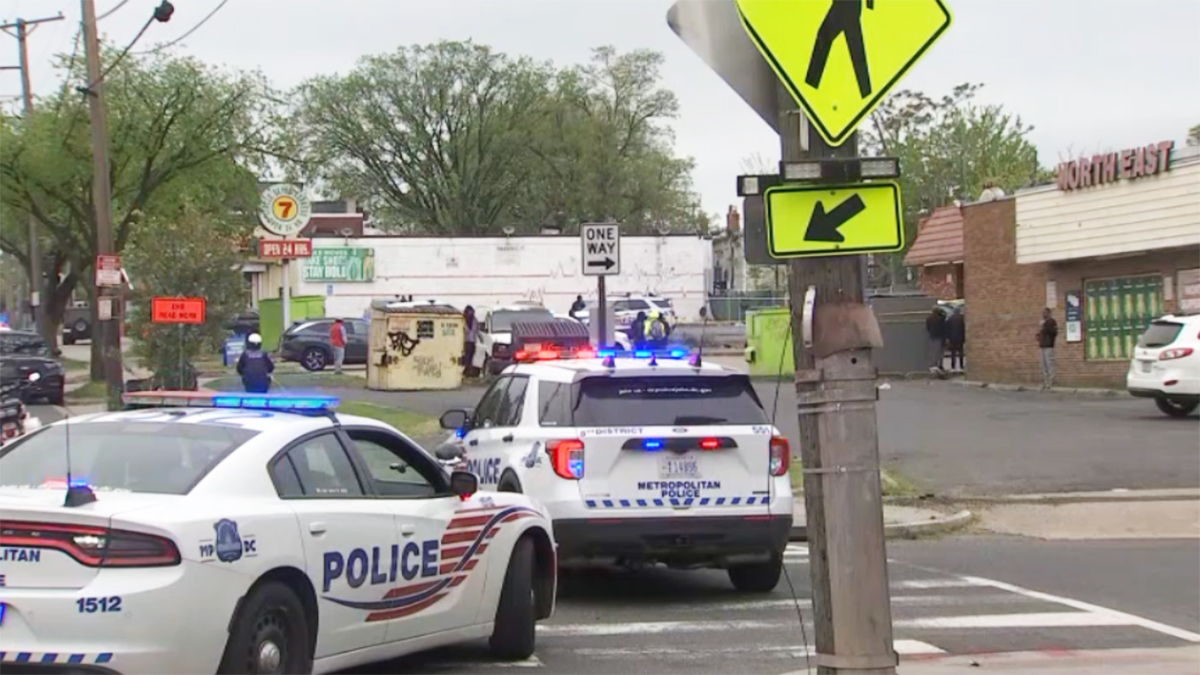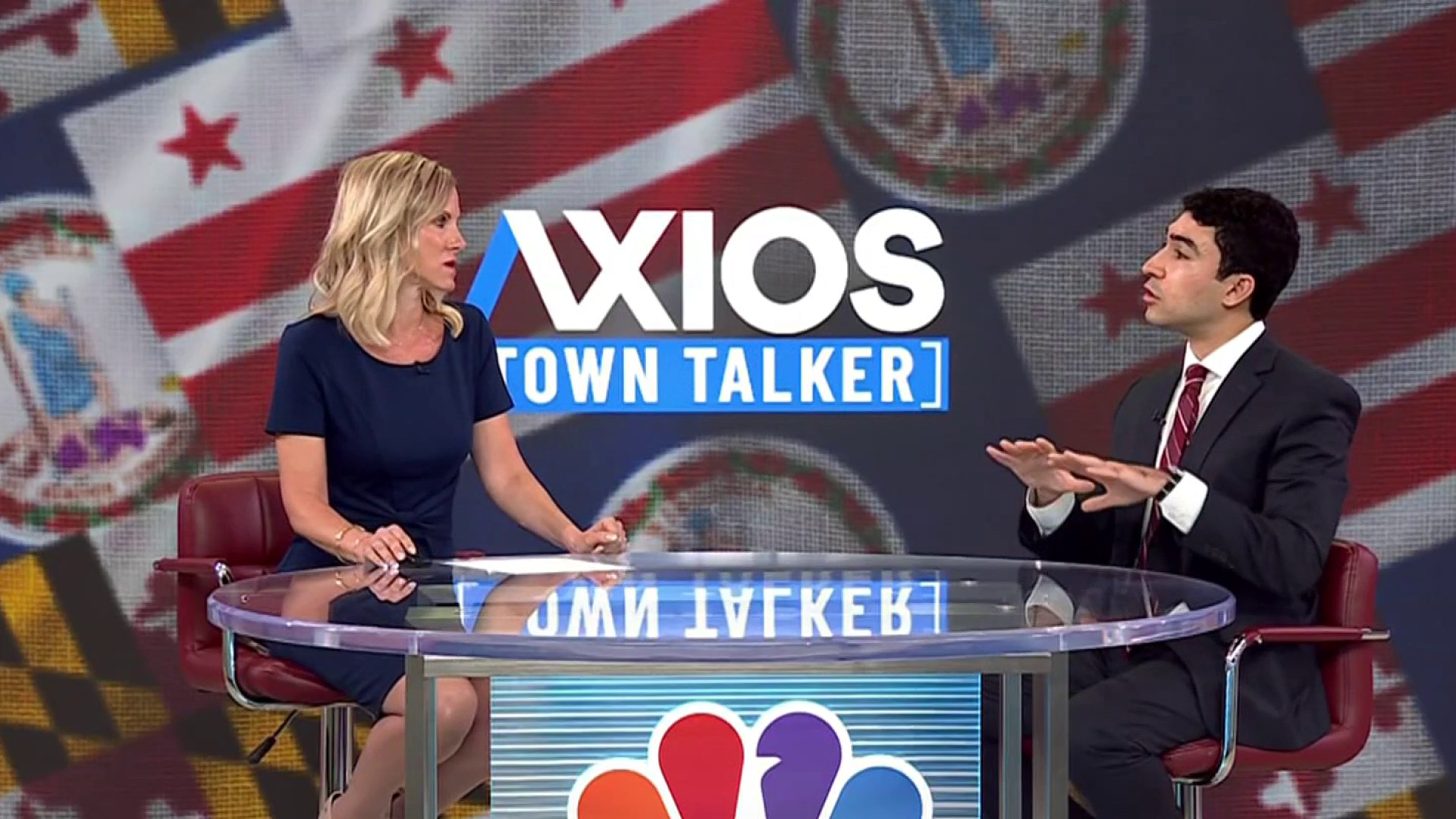Playing Frisbee, running through the grass and riding with his human in the car are all activities that Officer Aida Rodriguez's high-energy Belgian malinois, Tiger, enjoys.
Yet there's something different about him. When an unattended bag is found in D.C., Rodriguez and Tiger are first on the scene. Tiger sniffs through the area, sitting down when he detects something suspicious.
That's when a bomb tech, which Rodriguez is training to be, steps in to render the package safe.
"You have to be able to read him," said Rodriguez, the Metropolitan Police Department's only female canine handler. "They look up at you."
Tiger graduated from the Special Operation Division Canine Patrol Unit's training program, where he underwent eight hours of training per day for 16 weeks. Dozens of dogs graduate from this program, becoming bomb-detecting dogs like Tiger, or patrol pups, trained to find criminals, evidence and missing people.
"I'm building apex predators," said Officer Kelvin Dyson, canine handler and trainer for MPD's current patrol dog class. "These dogs go into the woods looking for a murder suspect."
"You've Got to Crawl Before You Walk"
Only German shepherds and Belgian malinois can enroll in patrol dog training. They're professionally bred, entering the class between their first and second birthdays with little outside training.
The course starts with agility and obedience training, eventually advancing to box searches and human tracking.
Local
Washington, D.C., Maryland and Virginia local news, events and information
"This is a process," Dyson said. "You've got to crawl before you walk."
Temperament matters. Dogs that show cowardice are dropped from the program. Environmental factors are also play a role. The dogs will practice on different surfaces regularly, Dyson said.
"You never want your dog to see something for the first time on a call," said Officer Stuart Jewell, a canine handler.
The officers learn to become handlers alongside their partners, forgoing regular work for the four-month-long class. Five officers and their dogs are currently enrolled in Dyson's course.
After training ends, the dogs will return to class once per month while spending eight to 10 years serving with one handler. They'll live with their handler when they're off-duty, forging a strong bond between the families and dogs.
"What Do I Have to Do to Come Into Canine?"
The Special Operations Division's Canine Unit is one of the most popular in the Metropolitan Police Department, Dyson said.
There's rarely a vacancy in the unit, making open positions rare and highly competitive. Applicants go through vetting, physical fitness testing and an interview with a selection board before they're offered the job.
Dyson has seen officers apply up to 10 times, he said.
"Wherever we go, someone says, 'What do I have to do to come into canine?'" Dyson said.
MPD's canine training program draws students from other agencies, too. Two of the five officers currently enrolled are from Manassas and Falls Church. MPD hasn't sent its own officers to outside classes since at least the 1960s, Dyson said.
Dyson said he's proud of being a trainer, teaching younger handlers to serve the unit.
"If you believe in the philosophy of sending the elevator back down, that's what it's all about," he said.



